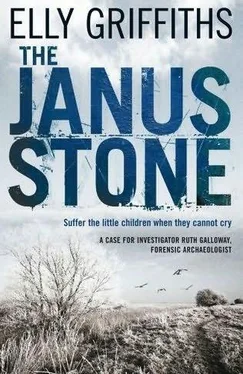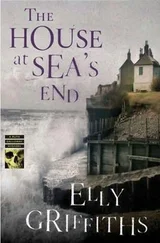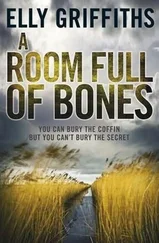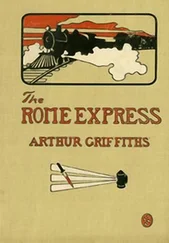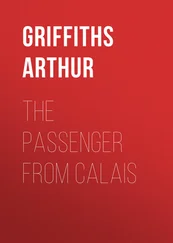Nelson sighs as he parks his car outside the Spens mansion. Having spent Sunday being the perfect husband, he now feels emotionally exhausted. He not only took Michelle to the garden centre but out for a pub lunch afterwards. He has even agreed to go to see some God-awful play with her tonight.
Now it’s a relief to be able to turn back to business. And Edward Spens won’t be able to hide behind his perfect house and double garage. Nelson wants some answers. Why didn’t Spens mention from the beginning that his family used to own the house on Woolmarket Street? And is there a dead child that he also forgot to mention? Not in Edward Spens’ lifetime perhaps but, sometime during the years that the Spens family lived in the house, a child was killed and buried under the wall, its head thrown into the disused well. That’s quite some family secret.
Edward Spens greets Nelson as if he is a long-lost friend. ‘Harry! Nice to see you. Come in.’ Nelson silently curses Whitcliffe and the circumstances which have led Spens to believe they are on first name terms. All he can do is reply, in his stiffest manner, ‘Good morning, Mr Spens.’
‘Edward, please.’ Spens ushers him through to the kitchen, which is at the back of the house with windows opening onto the garden. Michelle would die of envy if she saw this kitchen, thinks Nelson. Everything is perfect; from the gleaming surfaces, to the yellow roses on the table, to the blue cushions on the wicker sofa (sofas in the kitchen – that would never happen in Blackpool), to the expensive Italian coffee machine chugging away in the corner.
‘Coffee?’ asks Spens, pulling out a chair for Nelson. ‘This machine does a tolerable cappuccino.’
‘Just black will be grand, thanks.’
To complete the picture, as Spens busies himself with the coffee, the perfect woman walks in from the garden. A gleam of honey-blonde hair, a flash of blue eyes, a general impression of suntan and scent and expensive clothes and the vision is holding out its hand to Nelson.
‘My wife Marion,’ says Spens shortly.
Marion wasn’t at the medieval party (Nelson doesn’t blame her) so this is Nelson’s first meeting with Mrs Spens. His first thought is – never trust a man with a beautiful wife. He should know; he has one himself.
‘Pleased to meet you,’ says Marion Spens. Close up, her face is almost too perfect, the contours too smooth, everything too symmetrical. She looks nervous too, glancing at Edward before she speaks.
‘Harry is just here to ask questions about Woolmarket Street,’ says Spens heartily.
‘They’ve found a body haven’t they?’ says Marion with a quick flicker of eyes towards her husband. ‘Roddy told me.’
‘Roddy?’ As far as Nelson knows, the Spens children are called Sebastian and Flora. Typical Newmarket Road names.
‘My father, Roderick. Mad keen on history.’
‘He said the body could be medieval,’ offers Marion.
‘I’m afraid it’s far more recent than that,’ says Nelson. ‘I’d like to ask a few questions about your family’s ownership of the house.’ He is perfectly happy to talk in front of Marion. He has a feeling that she will give more away than her husband. Edward, it seems, has other ideas.
‘No problem. Bring your coffee and we’ll go through into the study. Excuse us, darling.’
The study is, of course, decorated in leather and dark wood. The bookcase displays pristine hardbacks and well-thumbed paperbacks. The walls are the colour of underdone roast beef.
Spens sits himself behind the desk, Nelson takes what is obviously the visitor’s chair. Family photographs grin up at him, on the wall is a picture of a rugby team. Nelson is willing to bet that Spens is in the middle, holding the trophy.
‘Well, Harry, this is all very mysterious.’
‘Not at all, Mr Spens. Just following a line of enquiry. Your family lived at the house in Woolmarket Street from…’
‘From 1850. It was built by my great-great-grandfather Walter Spens.’
‘I’m interested in the years between 1949 and 1955. Who would have been living in the house at that time?’
‘My grandfather, Christopher Spens, his wife Rosemary and their children Roderick and Annabelle.’
‘And Roderick is your father?’
‘Sir Roderick. Yes.’
‘I’d like to talk to him. Does he live locally?’
Edward pauses, fiddling with an executive toy on the desk. ‘Well, actually he lives with us.’
‘He does?’ Wondering why on earth Spens didn’t mention this before, Nelson asks, ‘Is he in?’
‘I believe so.’
‘Could I speak to him?’
‘Of course.’ But Spens doesn’t move. Finally he says, ‘My father is in the first stages of senile dementia. He can seem lucid, very lucid, but he gets confused very easily. And when he gets confused he gets… upset.’
‘I understand,’ says Nelson, though he doesn’t really. He has never met anyone with dementia and can’t imagine what it would be like living with someone who is slowly losing their sense of themselves. It makes him see Edward and Marion in a rather different light. ‘Must be hard,’ he offers.
‘Yes,’ Spens agrees. ‘Hardest on Marion because she’s at home more. Sometimes, what with my father and the children… though we have an au pair, Croatian girl, very good. And Dad keeps himself busy, has the Conservative Association, the Historical Society, still plays bowls. He’s a silver surfer too. Better with new technology than I am. He’s not an invalid yet.’
The ‘yet’ hangs on the air because the one thing Nelson does know about dementia is that it is irreversible.
‘I’ll get him for you,’ says Edward. He smiles slightly. ‘He’ll probably be pleased. He loves talking about the old days.’
This is certainly true though Edward Spens hadn’t mentioned that the old days included Ancient Rome, the Counter Reformation and the Crimean War. When he can get a word in, Nelson asks, ‘Sir Roderick, do you remember your years at Woolmarket Street?’
‘Remember them?’ Roderick looks at him sharply from under bushy white eyebrows. ‘Of course I do. I remember everything, don’t I, Edward?’ Edward agrees that he does.
‘You would have been, how old?’
‘I was born in 1938. I lived at the house until I left for Cambridge, when I was eighteen.’
That makes him seventy, Nelson calculates. No great age these days. His own mother has recently taken up line-dancing at seventy-three. Roderick Spens could be a decade older.
‘You lived with your parents?’
‘Yes, my father was the Headmaster of St Saviours on Waterloo Road. He taught classics as well.’
‘The school’s not there any more, is it?’
‘No, it closed sometime in the sixties. Great shame. It was an excellent school.’
‘Did you go there?’
‘Yes, it was my father’s school, y’see.’ He looks beadily at Nelson as if suspecting a trap. ‘My mother wanted me to go to Eton but m’father insisted. His word was law in our house.’
Nelson tries, and fails, to imagine one of his daughters saying the same about him. ‘And your sister… Annabelle. Did she go there too?’
Roderick looks confused. ‘Annabelle?’
Edward Spens cuts in. ‘It’s all right, Dad.’ He turns to Nelson. ‘My father still gets upset when he talks about her. She died young, you see.’
‘How young?’ asks Nelson, his antenna up.
‘Five or six, I believe.’
Ruth is at Woolmarket Street. The builders are starting work again tomorrow and she wants to collect the rest of the finds. Not that the other trenches have turned up anything very exciting – some more pottery, some glass, a few coins. But there might be something interesting there and she needs to check that the site is tidy. That’s her job as lead archaeologist. It’s another warm day and it’s surprising how innocuous the site looks in the sunlight. Nevertheless, Ruth finds herself looking over her shoulder every few minutes and jumping when a squirrel runs across the wall in front of her.
Читать дальше
